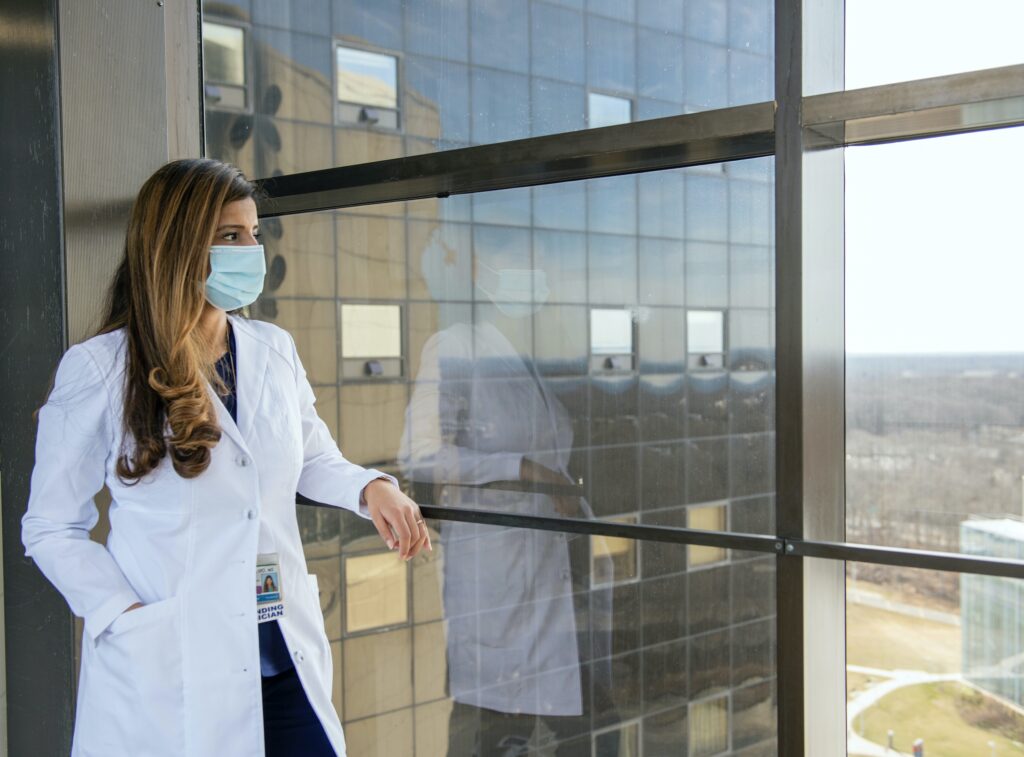(PORT JEFFERSON, N.Y.)— Palliative Care focuses on supporting patients and their families during a serious illness. Palliative care teams rely on frequent in-person communication with patients and their families – but that changed with the pandemic.
Dr. Grace La Torre, Director of Palliative Care at Stony Brook University Hospital, spoke with The Click about trying to be there for her patients in the early days of the COVID-19 pandemic.
This article was edited for clarity and length.
The Click: Tell us your story of becoming a palliative care provider.
Dr. La Torre: “Once I started my [medical] training, I realized that there were gaps in the way I was being taught to speak and interact with families. The doctors would ask families to leave the room before they saw the patient. Then after seeing [the patient], they would discuss, among themselves, their concerns. But none of the doctors would share their concerns in a straightforward way with the families. I couldn’t understand why. And again, this was the culture. In my second year of training, I had an opportunity to do a palliative care rotation. I learned how to include families in shared decision-making. It felt natural for me to be that type of physician.”
The Click: What was it like at the hospital during the early days of the COVID-19 pandemic?
Dr. La Torre: “I remember that things changed so quickly in those early days. There was no time to process. We had [Long Island] a rapid influx of patients with COVID-19 in the first months of the pandemic. Suddenly it was three patients, then ten, then fifteen… Initially, our team struggled with how to have a role in caring for patients that were very sick with COVID-19 on top of another illness. How do we balance caring for a patient and protecting ourselves? We were seeing our colleagues get sick. It was frightening.”
The Click: Did the pandemic impact your patient care?
Dr. La Torre: “Our team is used to spending a lot of time with the patients. That changed during the pandemic. It was difficult for us to balance hospital rules regarding Covid isolation with the kind of interactions our team is used to having. It is hard to build trust. We walked into many patient rooms and found them scared, lonely, and isolated from the world and their families. It was, for the patients, such a traumatic experience. We spent as much time as possible just holding people’s hands.”
The Click: What was the hardest part of the experience?
Dr. La Torre: “The hardest part was losing the in-person conversations with families. We had no choice but to have family meetings over the phone or video call. It was hard. Normally we have time to build rapport with our patients and families. We get to see them in person. So we have that personal connection. We have multiple conversations. Now families are being asked to make hard decisions without being able to see what is happening for themselves. It was very emotional for everyone. We would cry.”
The Click: Looking back on those first few months, is there anything you learned from the early days of the pandemic that helps you now in the care of seriously ill patients?
Dr. La Torre: “The pandemic has made me humbler and helped me learn to accept uncertainty as a factor in every medical situation. We were seeing patients with COVID-19 that I thought would die who ended up leaving the hospital – walking. Knowing that we don’t know it all and there’s still so much we’re learning.”


